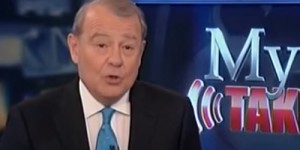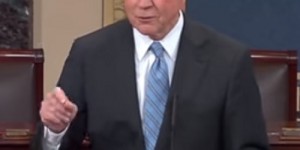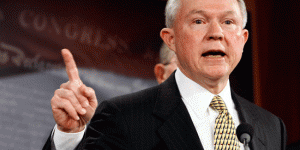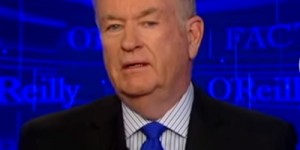Before Donald Trump walks on stage at the Quicken Loans Arena in Cleveland for the first Republican presidential debate on Thursday night, he will have already succeeded in wielding a dramatic – and some believe potentially fatal – impact on his party and the nine other candidates standing beside him vying to be its nominated candidate in the race for the White House.
The reality TV star’s provocative comments on immigrants from Mexico have driven his alarmed rivals into such a hardline stance over immigration that political strategists, law experts and pollsters are warning it could cost the Republicans the 2016 presidential election.
In the wake of Trump’s inflammatory remarks, the pack of Republican contenders has shifted sharply to the right, ditching all talk of immigration reform and focusing instead on enforcing tough security measures along the Mexican border.
“It’s the Trump effect,” said Kevin Johnson, Dean of UC Davis school of law. “He has staked out an enforcement position over immigration and that in turn has moved everybody else over to enforcement thinking.”
Conservative immigration experts are among those raising a red flag over the likely electoral impact of the Trump-led dash to the right. Alex Nowrasteh, an immigration analyst at the libertarian Cato Institute, said that the increasingly hostile positions adopted by the Republican presidential hopefuls have effectively “written off a large voting block” in key marginal states with substantial Hispanic populations such as Colorado, New Mexico, Nevada, Florida andVirginia.
“People don’t forget when they’ve been insulted and offended by politicians denouncing them and their families as unwanted and illegal. It takes a long time to walk that back – and the election cycle simply isn’t long enough for that,” Nowrasteh said.
The latest example of the Trump effect was this week’s statement by Jeb Bush, the Spanish-speaker married to a Mexican American, who in the past has argued robustly for comprehensive immigration reform that would bring millions of undocumented immigrants out of the shadows. Yet his six-point plan unveiled on Monday focused exclusively on how to keep unauthorized immigrants from entering the US by beefing up patrols and surveillance along the Mexican border, combined with proposals for ejecting from the country those who have overstayed their visas.
Johnson believes that the Trump-led Republican obsession with border security is likely to mean many more years of delays before a route to legal status is found for the 11 million undocumented immigrants already living in the US. “They’ve waited a very long time, relatively patiently, for their status to be legalized, and now the Trump effect will delay reform for the foreseeable future.”
But it’s not just the millions of unauthorized immigrants who stand to reap the consequences. Bush himself, and his party, are heading in a perilous direction.
Marshall Fitz of the immigration reform advocacy group, the Emerson Collective, said that by conforming to the tough-on-border-security tone set by Trump, Bush risked jeopardizing his greatest electoral strength – his appeal to Hispanic voters. “He had the chance to compete for an increased slice of the Latino electorate, but that’s now in question.”
“The GOP are currently on a suicide mission when it comes to appealing to Hispanic voters and winning national elections,” said Fernand Amandi, principal of the political research firm Bendixen & Amandi. Amandi conducted an opinion poll for Univision last month that underlined the risk to the Republican party.
It found that there was a large natural conservative constituency among registered Hispanic voters, a third of whom said they were very or somewhat conservative in their politics and a further third said they were “moderate”, suggesting they were open to advances from either main party. Yet only 16% said they considered themselves to be Republican, compared with 58% who identified as Democrats.
“The Republican brand has been so debased in recent years that they are losing potential voters who you might think are at the sweet spot for the party,” Amandi said.
Recent presidential cycles further underline the threat. In 2004, George Bush won re-election with 44% of the Hispanic vote, but since then it has been downhill all the way for the Republicans: John McCain attracted 31% in 2008 and Mitt Romney a woeful 29% in 2012.
That both McCain and Romney failed in their bid for highest office may not be coincidental. As the Hispanic population in the US continues to grow, both numerically and as a proportion of the electorate – particularly in vital swing states – so, too, does its leverage over elections.
A recent study by the political research company Latino Decisions calculated the margins among Hispanic voters that the eventual Republican nominee would need to win in battleground states in order to take the presidency. The GOP would need to command 42% of the Latino vote in New Mexico, the study concluded, 44% in Colorado, 45% in Nevada and 47% in Florida.
That’s vastly greater than the proportions enjoyed by McCain and Romney, and yet the policies that the leading Republican candidates are promoting under the Trump effect appear custom-designed to drive Hispanic voters further away in droves.
Senior Republicans are fully aware of the potential for disaster. Whit Ayres, a Republican pollster advising the US senator for Florida Marco Rubio on his presidential campaign, has stated publicly that in his calculation the GOP nominee will need to attract more than 40% of the Latino vote to have any chance of success.
Yet even so, Rubio himself has been notably sotto voce about immigration reform in recent days. Having been a leading proponent in 2013 of a comprehensive Senate package that would lay down a pathway to citizenship for the 11 million undocumented immigrants, he now talks in euphemisms about the need for “modernization” of America’s immigration laws while joining his rivals in loudly banging the border security drum.
The reason why leading Republican candidates are piling in behind Trump and his anti-immigration posture is plain to see – such tough talk plays well in the early-decision caucus and primary states such as Iowa and New Hampshire that must be won to secure the party’s nomination. But on a policy level the move is puzzling at a time when undocumented migration into the US is actually on the wane.
This year, unaccompanied minors have been crossing the Mexican border into the US at a frequency of about a half of last summer’s so-called “surge”, and apprehensions of Mexicans trying to get across without papers have fallen to historic lows. The Pew Research Center has pointed out that the population of unauthorized immigrants in the US has now been stable for the past five years, at about 11 million – equivalent to about 5% of the workforce.
“It’s absurd to be focused totally on the flow of people across the Mexican border at a time when the numbers have collapsed,” said the conservative policy expert, Alex Nowrasteh of the Cato Institute. “If we’d been having this debate a decade ago it would have been more relevant.”




























